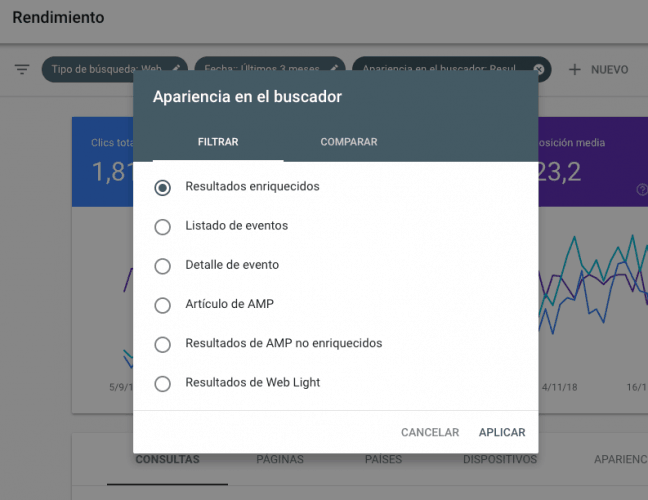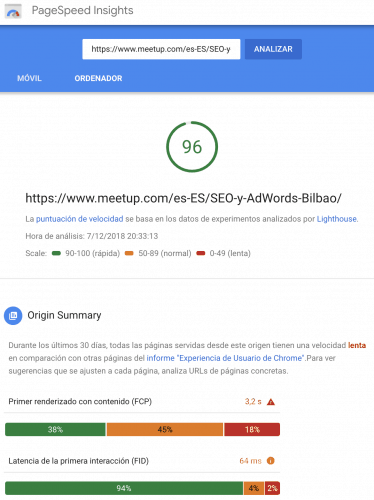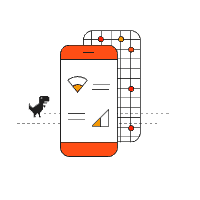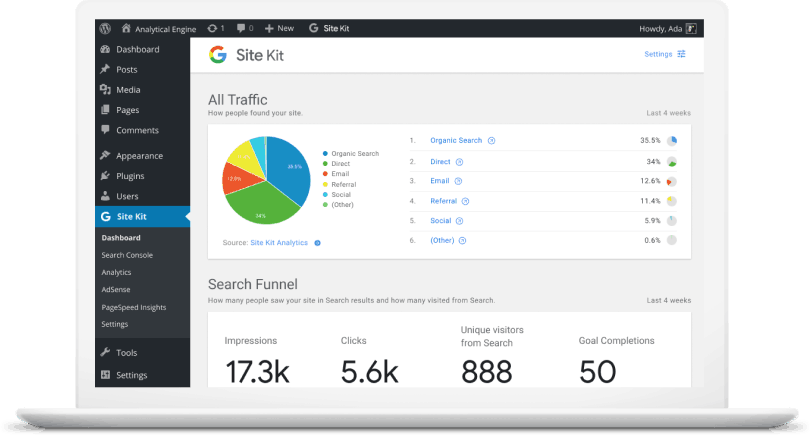En este artículo
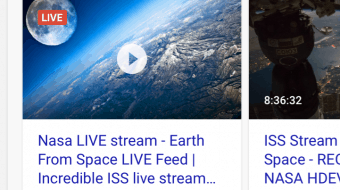
Hello SEO Pros!
The last #NotiSEO of the year has arrived. Packed with interesting news.
No speculation, let’s go to the most reliable sources:
| Date | Source | News |
|---|---|---|
| 16/11/2018 | SE Round Table | Google Update, News Publishers Ranking, BBB & Trust Signals & Google Audit Tools |
| 23/11/2018 | SE Round Table | Google Search Rankings, News Indexing Bug, Black Friday Ads & More |
| 30/11/2018 | SE Round Table | Search Engine Land Dropped In Google, Zero Search Results, Thanksgiving Update & More |
| 03/12/2018 | Webmaster Central Blog | Rich Results expands for Question & Answer pages |
| 05/12/2018 | Webmaster Central Blog | Introducing the Indexing API and structured data for livestreams |
| 7/12/2018 | SE Round Table | Google Algorithm Changes, Sticky Search Bar, Filter Bubbles, Livestreams & Holidays |
Performance Report in Google Search Console: more filters available
Google has added a filter under the “search appearance” filter to the Google Search Console performance reports for both event listings and their details.
This is a new filter that helps to see how well the structured event markup is performing in search.
Google PageSpeed Insights report updated with Lighthouse data
Web.dev: new Google tool for SEO Auditing
Google has launched a beta version of several website reporting tools at Web.dev that show you performance across various factors.
With the list of recommendations we generate, Web.dev helps developers learn and apply modern web capabilities to their own sites and applications.
🆕We just announced https://t.co/nDFBkP4gxa⚡️
It is a brand new site form the team behind this account✨Learn how to build for the web and measure if your site is meeting good practice goal❤️It is open beta Today, so please give it a try & tell us what you think 🙂 pic.twitter.com/ZXZC9v1wvd
— Chrome for Developers (@ChromiumDev) November 12, 2018
The tool really relies on the recently launched Lighthouse and focuses on several aspects that benefit SEO:
Page Load Times
Sites should focus on optimizing user-centric satisfaction metrics. Tools like Lighthouse (which Web.dev uses) highlight these metrics and help you take the right steps to improve performance.
In short, in this section, the tool will help you:
- Measure your website’s performance
- Optimize images
- Optimize JavaScript
- Optimize web fonts
- Measure performance using the Chrome UX Report
- Enforce performance budgets
Note: More information about the Chrome UX Report in this talk from the last Google I/O:
Network Response
The web offers exposure and access to a global audience, which is diverse in devices, browsers, and network connections.
This section will allow you to fine-tune your website to provide the user with a reliable and consistent experience, regardless of where and how they access the Internet.
- How to measure network responsiveness.
- Caching options.
Security and Protection
All websites are vulnerable to attacks, not just those that handle sensitive data.
In this section, the tool provides us with techniques to keep users and content safe.
Ease of Indexability
Making content “discoverable” is important because it’s how you get the most relevant users to see your content.
If a search engine has trouble seeing your page, you may be missing out on opportunities. In this section of the tool, we will find:
- How search works and how to measure discoverability.
- Checking search engine behavior so they can understand your content.
- Checking the ‘crawlability’ and indexability of your website’s pages.
- Mobile compatibility.
Accessible for everyone
All users, including those with limitations or disabilities, should be able to access your content.
In this section, you will learn how to provide a robust experience for your users that takes into account their context and any situational, temporary, or permanent impairments.
Specifically, by adapting the web for accessibility, we can:
- Understand the diverse needs of users.
- Make the keyboard a useful device for navigating and accessing your content.
- Understand semantics and basic screen reader support.
App for Google My Business
Google has announced an update to the Google My Business app to help businesses create and manage their local listings on Google Maps.
The new features of the app include a review management section, information analysis, profile management, Google Posts management, real-time messaging, and notifications.
https://www.youtube.com/watch?v=vsNcMJuRSME
You can download the revised app for iOS or Android. Here is the list of changes:
- New Customers tab: you can respond to reviews, send messages to your customers, and see your followers in one place.
- Home tab. Click, call, direct requests, and see at a glance how and how much your customers interact with your Business Profile directly from the app’s Home tab.
- Business Profile – the box with your business information that is displayed on Google Search and Maps finally has a name: Google Business Profile. Edit your business profile and see the changes on Google in real-time.
- With a tap of the new Post button in the app, you can easily upload photos, create offers, posts, and share what makes your business unique.
- Real-time notifications let you know when a customer connects with your business through Google.
- Several bugs have been fixed and other technical improvements have been made to help keep your business running smoothly on Google.
Question and Answer Pages: New Rich Data Structure
A long-awaited structure applicable to news, expert forums, message boards, etc.
The page format must contain information about the question and zero or more answers. The code in JSON-LD format would look like this:
<html>
<head>
<title>How many ounces are there in a pound?</title>
</head>
<body>
<script type="application/ld+json">
{
"@context": "http://schema.org",
"@type": "QAPage",
"mainEntity": {
"@type": "Question",
"name": "How many ounces are there in a pound?",
"text": "I have taken up a new interest in baking and keep running across directions in ounces and pounds. I have to translate between them and was wondering how many ounces are in a pound?",
"answerCount": 3,
"upvoteCount": 26,
"dateCreated": "2016-07-23T21:11Z",
"author": {
"@type": "Person",
"name": "New Baking User"
},
"acceptedAnswer": {
"@type": "Answer",
"text": "1 pound (lb) is equal to 16 ounces (oz).",
"dateCreated": "2016-11-02T21:11Z",
"upvoteCount": 1337,
"url": "https://example.com/question1#acceptedAnswer",
"author": {
"@type": "Person",
"name": "SomeUser"
}
},
"suggestedAnswer": [
{
"@type": "Answer",
"text": "Are you looking for ounces or fluid ounces? If you are looking for fluid ounces there are 15.34 fluid ounces in a pound of water.",
"dateCreated": "2016-11-02T21:11Z",
"upvoteCount": 42,
"url": "https://example.com/question1#suggestedAnswer1",
"author": {
"@type": "Person",
"name": "AnotherUser"
}
},
{
"@type": "Answer",
"text": " I can't remember exactly, but I think 18 ounces in a lb. You might want to double check that.",
"dateCreated": "2016-11-06T21:11Z",
"upvoteCount": 0,
"url": "https://example.com/question1#suggestedAnswer2",
"author": {
"@type": "Person",
"name": "ConfusedUser"
}
}
]
}
}
</script>
</body>
</html>
Where the valid answer and suggested answers are indicated. The appearance in a search result would look like this:
Indexing API and structured data for Live Streams
In recent years, it has become easier than ever to stream videos. But it’s not always easy for people to determine which videos are live and know when to access them, unless they are subscribed to your YouTube channel or Facebook Page or Group.
With live stream structured data and the Indexing API, we can notify Google when a video is live, so it can appear with a red “live” badge:
JSON-LD Setup
On the page where the video is embedded, structured markup should be used to indicate the live stream and the start and end times. Additionally, VideoObject structured data is necessary to inform Google that there is a video on your page.
{
"@context": "http://schema.org",
"@type": "VideoObject",
"contentURL": "https://example.com/bald-eagle-at-the-park.mp4",
"description": "Bald eagle at the park livestream.",
"duration": "37:14",
"embedUrl": "https://example.com/bald-eagle-at-the-park",
"expires": "2016-10-30T14:37:14+00:00",
"interactionCount": "4756",
"name": "Bald eagle nest livestream!",
"thumbnailUrl": "https://example.com/bald-eagle-at-the-park",
"uploadDate": "2018-02-27T14:00:00+00:00",
"publication": [{
// The current broadcast.
"@type": "BroadcastEvent",
"isLiveBroadcast": true,
"startDate": "2018-02-27T14:00:00+00:00",
"endDate": "2016-10-27T14:37:14+00:00"
},
{
// The next scheduled broadcast (also live, not retransmission).
"@type": "BroadcastEvent",
"isLiveBroadcast": true,
"startDate": "2016-10-27T18:00:00+00:00"
}]
}
How to notify Google that we are live?
Obviously, we want the live video to appear in the results as soon as the broadcast begins. For this, we can use the Indexing API which is normally used for highly volatile structured data, such as job offers.
To start using the Indexing API, you have to go through some steps and prerequisites like creating a service account, verifying ownership in Search Console, and obtaining an access token to authenticate API calls.
This is usually done by sending HTTP POST requests, in JSON format. For example:
Update a URL
POST https://indexing.googleapis.com/v3/urlNotifications:publish
{
"url": "https://careers.google.com/jobs/google/technical-writer",
"type": "URL_UPDATED"
}
Remove a URL
POST https://indexing.googleapis.com/v3/urlNotifications:publish
{
"url": "https://careers.google.com/jobs/google/technical-writer",
"type": "URL_DELETED"
}
SiteKit: Google and WordPress hand in hand
Google has announced the launch (still in Beta) of SiteKit, a free plugin to link a WordPress website with all its services:
Got a WordPress site? Sign up to beta test Site Kit: https://t.co/rKSolyU64m — our new free WordPress plugin that integrates essential Google products: Search Console, Analytics, AdSense, and PageSpeed Insights. pic.twitter.com/DPu5VmfK9M
— Google Search Central (@googlesearchc) December 7, 2018
Specifically, from the WordPress dashboard we can see:
- Search Console: Understand how Google systems discover and render your pages. Track how many people saw your site in search results, and for which queries.
- Analytics: See how users navigate your website and if they complete the goals you have set as conversions.
- AdSense: Keep track of how much your site is earning you in terms of advertising revenue.
- Page Speed: See how your pages perform compared to other sites. Improve performance with practical tips from PageSpeed Insights.
Google SiteKit
Google Personalizes Your Celebration 🎉
The search engine interface “dresses up” for celebrations. When we search for Christmas, Hanukkah (Jewish holiday), or Kwanzaa (African-American holiday), the results appear decorated with symbols of those celebrations.
